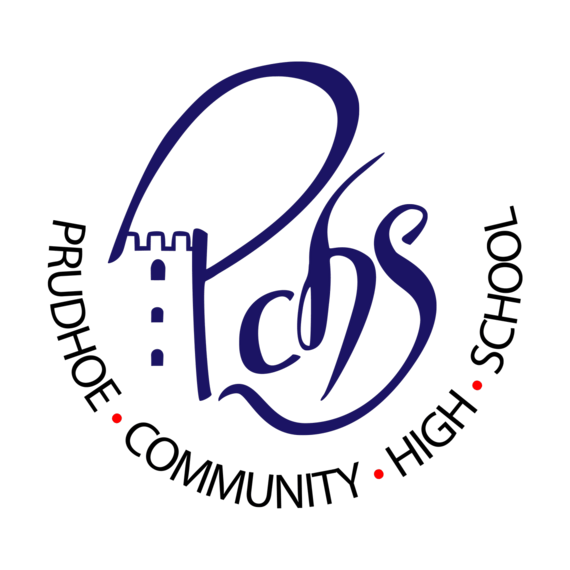About the department
The Business and ICT department at PCHS comprises of 3 subject areas taught from Key Stage 3-5. These subjects are Business, Computing and ICT.
Only one of these subjects is delivered in key stage 3. All PCHS students receive 1 hour of Computing/ICT each week. Students follow a broad and varied curriculum, designed to ensure that they gain the digital literacy skills required to help them progress in a dynamic ICT environment.
All students receive lessons to help them know, understand and apply the main concepts relating to the use of Information Technology, ranging from selecting and using the appropriate software for a defined purpose to physically creating IT products.Organisation and research skills are also an integral part of the curriculum. The emphasis of the Computing/ICT curriculum is to prepare students for using IT and understanding its role in the wider context (IT in a school setting/workplace, in business and social use), students also become more familiar with the legislation that protects organisations and individuals.
In addition, all students also receive lessons in Computing, which enables them to explore their programming skills and suitability for Computer Science at key stage 4.
At Key Stage 4
At A-Level
At A level, Business Studies, Computer Science and ICT options are offered for those wishing to further their subject specific interests or embark on a new direction in learning. These courses are popular due to their vocational structure but also prepare our students with flexibility in their pathways, post sixth-form. The range of skills developed, increases their employability skills as well as providing depth of knowledge and practical skills. Many students continue to pursue careers in Business or ICT disciplines or progress to the variety of courses in higher education that are underpinned or compliment these subjects.
Business Studies at PCHS
As a subject, we believe that all students have the ability to succeed and that business studies develops a range of transferable skills that help students be successful in the real world.
The GCSE curriculum is sequenced in such a way that students start to learn about small businesses in year 10 and the external influences that affect them. They then move onto larger businesses in year 11 and their different functional areas. The GCSE course provides an introduction to how businesses operate, the main business concepts applied and the challenges faced by new businesses as well as established and successful businesses. Students gain a broad depth of business knowledge and to help them to progress onto all business disciplines, this knowledge helps them to analyse, recommend and justify business decisions as well as obtaining the skills required to become self starter in business.
Students can also progress to A-Level Business Studies.
Computer Science at PCHS
Computer Science covers a range of topics as well as a more in depth understanding of programming. The course is structured in a way that students accelerate from basic programming skills to developing complex programming skills and applying them in a programming project. In Year 10, Unit 2 develops and strengthens their computational thinking skills and ability to read and create algorithms. Students develop in confidence and also learn theory such as computational logic (boolean, logic gates etc) as well as producing robust programs. Once the project is complete, Students learn content from Unit 1, which briefly comprises of systems architecture, data storage, hardware, software, networks, systems security, and ethical and legal considerations, leading to their final summer exams.
The Computer Science curriculum is delivered to encompass all abilities, as theory can be understood by all but applied in different ways to suit ability. Computer Science challenges students problem solving skills, helps them understand the background technology used in systems they encounter on a day to day basis and develops an informative and practical introduction to a range of potential careers and options in higher education. Students can progress to A-Level ICT and/or Computer Science at PCHS to broaden and combine their abilities, ensuring their knowledge, understanding and skill set is suited for a range of pathways/opportunities.
ICT at PCHS
All students should be equipped with the digital literacy skills that are required to succeed in the modern world. From Year 9, we deliver the main concepts of Information Technology, ensuring all students can use appropriate and standard software packages to provide basic IT proficiency. Online safety, data handling/storage, research skills, programming skills, legislation and an understanding of audience is an integral part of the curriculum. The emphasis, through theory and practical activities is to prepare students to use IT efficiently and understand its role in the wider context (business, government, social media). By increasing their ability to effectively use a wide range of software for recording, extracting, analysing and presenting data (and with some students following the Computer Science route at GCSE, programming literacy and skills) we allow them to develop greater employability and transferable skills to their chosen career path as well as supporting their use of IT in other GCSE and A-level option choices.
Links to key documents
2023_24-Curriculum-Overview-Information-Technology-J836-Year-10
Year-10-J836-Information-Technology
Year-10-Business-Studies
Year-10-Computer-Science
Year-11-Business-Studies
Year-11-Computer-Science
Year-12-BTEC-IT
Year-12-Cambridge-Technical-Business-Studies
Year-12-Computer-Science
Year-13-BTEC-Information-Technology
Year-13-Cambridge-Technical-Business-Studies
Year-13-Computer-Science

